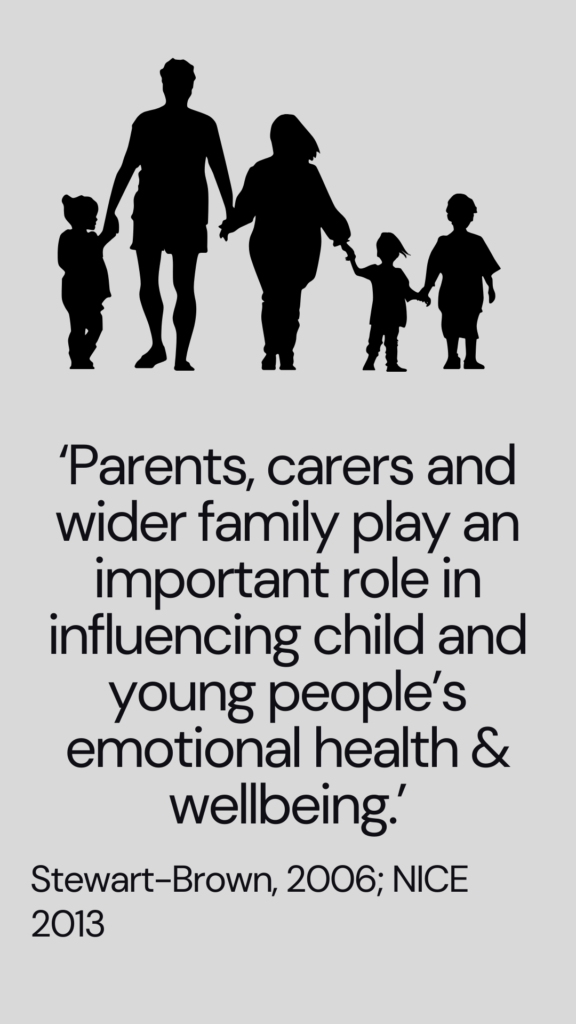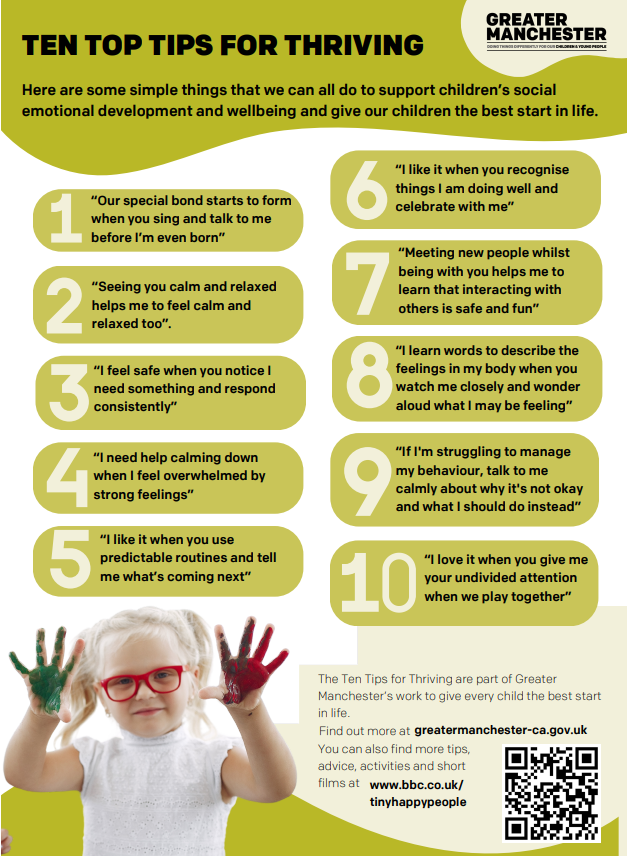Introduce

Families are the most important influence in the early years as we’ve seen through our exploration of attachment and resilience. Identifying and addressing a family’s needs can increase protective factors that positively influence a child’s wellbeing, and decrease risk factors that may be impacting a child’s life negatively. Early years practitioners can use all interactions with families as an opportunity to offer support, build resilience and identify any additional needs of both parents and other key family members to signpost or refer for additional help. Making strong relationships with families can help support transitions, deepen your understanding of a child’s needs and offer guidance to parents and caregivers.
The House Model of Parenting is a model of key parenting principles that can be supported by early years settings, specialist support services and professionals. Each aspect of this model will help to build resilience by strengthening parent-child attachment and supporting parents to consistently respond to the needs of the infant.
Image source: AFKA Cymru
Every family is different so a range of techniques may be needed to engage different families. Taking time to build trust with a child’s family can make a huge impact on their mental health, resilience and social, emotional development.
It’s important to recognise that families from a range of cultural, racial or ethnic backgrounds might relate to and understand concepts of social and emotional development, wellbeing, education, parenting and accessing support in different ways.
Develop
Watch the following video where Dr Madeline Marczak, Principle Clinical Psychologist, Manchester Foundation Trust discusses how we might engage families and what barriers could get in the way:
With support and guidance, parents and caregivers can help children to develop socially and emotionally. If families are enabled to prioritise their children’s wellbeing during this critical period, they will provide a strong foundation for the future. Being able to signpost and share resources to support parents is key.

Reflect
Stop and Reflect: Use the following questions to think about how best to support families to promote social and emotional wellbeing in young children:
– How can the whole family be taken into consideration when supporting babies & children?
– Think about how parents & carers could be involved in the design and delivery of support services. What could this look like? Research & reflect on how parents and caregivers could be engaged to be part of the solution.
If you want to find out more about how to effectively work with families, head to the e-learning course: Engaging with Families.






